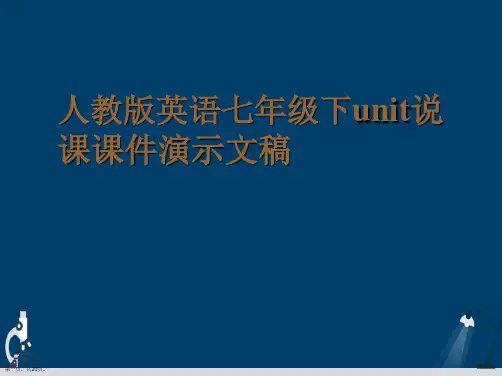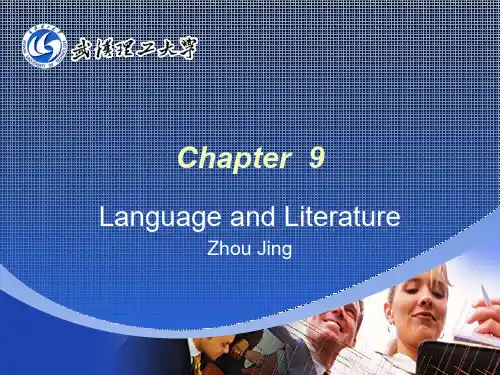英语演示文稿
- 格式:ppt
- 大小:2.78 MB
- 文档页数:6











英语演示文稿范文Effective communication is a crucial skill in today's fast-paced and interconnected world. Whether you are presenting to a group of colleagues, pitching an idea to potential investors, or educating students, the ability to deliver a compelling and informative presentation can make all the difference. In this essay, we will explore the key elements of a successful English presentation and provide a sample template to guide you in creating your own engaging and impactful presentations.Structure and OrganizationThe foundation of any great presentation is a well-structured and organized format. Begin by clearly defining the purpose of your presentation. Are you aiming to inform, persuade, or entertain your audience? This will help you tailor the content and flow of your presentation accordingly.Next, divide your presentation into a clear and logical sequence of sections. A common and effective structure includes an introduction, a body with several key points, and a conclusion. In the introduction,capture your audience's attention, state the main objective of your presentation, and provide a brief overview of the topics you will cover. The body of your presentation should delve deeper into the key points, using supporting evidence, examples, and visual aids to reinforce your message. Finally, the conclusion should summarize the main takeaways, reaffirm the significance of your topic, and leave a lasting impression on your audience.Throughout the presentation, maintain a smooth and coherent flow by using transitional phrases and signposting techniques. This will help your audience follow the progression of your ideas and stay engaged with the content.Content DevelopmentThe content of your presentation should be well-researched, relevant, and tailored to the needs and expectations of your audience. Begin by conducting thorough research on your topic, gathering reliable information from reputable sources. Carefully select the most important and compelling information to include in your presentation, and organize it in a way that tells a clear and compelling story.Avoid overloading your audience with too much information. Instead, focus on a few key points and dive deeper into each one, providing relevant examples, statistics, and anecdotes to support yourarguments. Use clear and concise language, avoiding jargon or technical terms that may confuse your audience.Visual AidsEffective visual aids can greatly enhance the impact and memorability of your presentation. PowerPoint slides, infographics, videos, or other multimedia elements can be powerful tools to engage your audience and reinforce your message. However, it's important to use these aids judiciously and in a way that complements your spoken content, rather than distracting from it.When creating visual aids, keep the design simple and uncluttered. Use high-quality images, charts, and graphs that are easy to read and understand. Limit the amount of text on each slide, and use a consistent and professional-looking template throughout your presentation.Delivery and Presentation SkillsEffective delivery and presentation skills are crucial for captivating your audience and conveying your message with confidence and clarity. Practice your presentation thoroughly, ensuring that you are comfortable with the content and can deliver it smoothly and naturally.Maintain good posture, make eye contact with your audience, anduse natural hand gestures to emphasize your points. Speak clearly and at a moderate pace, varying your tone and inflection to keep your audience engaged. Avoid filler words like "um" or "uh," and be mindful of your body language, ensuring that it aligns with the content and tone of your presentation.Engage your audience by asking thought-provoking questions, encouraging discussion, and responding to their reactions and feedback. This will help you create a more interactive and dynamic presentation that resonates with your audience.Adaptability and Audience EngagementFinally, be prepared to adapt your presentation to the needs and interests of your audience. Pay attention to their reactions and adjust your pace, tone, or emphasis as needed to ensure that your message is being effectively communicated and understood.Encourage audience participation by inviting questions, soliciting feedback, or incorporating interactive elements into your presentation. This will not only keep your audience engaged but also help you gauge their understanding and tailor your content accordingly.In conclusion, a successful English presentation requires a combination of careful planning, effective content development,engaging visual aids, and polished delivery skills. By following the guidelines outlined in this essay, you can create a compelling and impactful presentation that effectively communicates your message and leaves a lasting impression on your audience.。